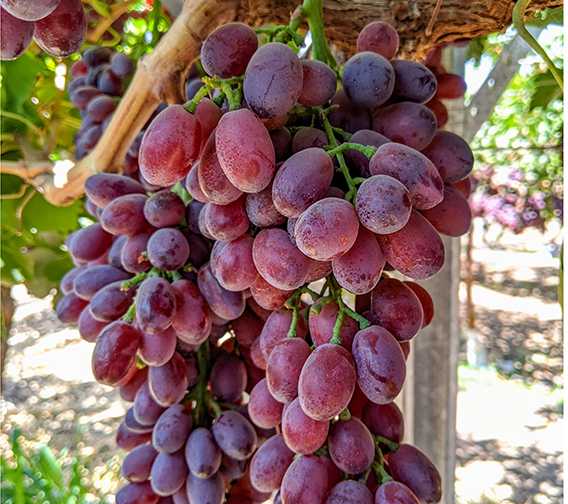Vegetable Seed Breeders Taking on Susceptibility in Cucurbits
Discussion between vegetable seed suppliers and their distributors at the annual Hall Field Days in Upstate New York frequently centered on the challenge of finding varieties that combine excellence in disease resistance with excellence in fruit quality and yield. Diseases cited included Phytophthora capsici and downy mildew.
“As a seed company, we see clear increases in virus pressure that we need to stay ahead of and bring resistant varieties to market as quickly as possible to help our grower partners,” says Michael Ferlito, Area Sales Manager at Sakata Seed America.
For Ferlito, this recently pertains to raising cucurbits. Viruses and diseases not normally seen in the Northeast have become more prevalent in those crops, he says.
“Usually we would have issues, say, once in every handful of years in crops like pumpkin. Now we have had two years in a row where we have had widespread issues across the Northeast and Eastern Canada in pumpkin,” Ferlito says. “Some believe we are seeing more virus pressure due to reduced pesticide use, which leads to higher levels of pests infecting plants.”
Phytophthora, which frequently affects peppers, now afflicts other crops as well, Ferlito says.
“Cucurbits are a segment that is experiencing more and more effects from phytophthora pressure. Breeding phytophthora resistance into cucurbit crops could prove to be a challenge, but this is something that companies like Sakata have on their radar for sure,” he says.
“We work closely with our breeding team to bring these issues to the forefront to ensure we are positioned to help our grower partners take on these new challenges.”
Downy Mildew Advancement
Two of Enza Zaden’s basil varieties, ‘Evi’ and ‘Guiletta’ received “enthusiastic feedback” in New York from dealers who, according to the company, were pleased with their strong downy mildew resistance as well as for their flexibility for use in the open field and controlled environment agriculture environments.
‘Outlaw’, an adaptable and spineless addition to Enza Zaden’s zucchini program, displayed a strong disease package and an upright open plant habit, enabling healthy plants and extended late-season picking, the company reports. The red onion ‘Tannat’, with impressive fruit quality and high-yield potential, plus strong roots and vigor, is creating a buzz in the Northeast and Midwest, according to Enza Zaden.
“The innovation, quality, and resistance packages behind all varieties demonstrates our commitment to understanding grower challenges and our capacity to deliver solutions,” Rod Jorgensen, Enza Zaden’s Area Sales Manager in the Eastern U.S. and Canada, says.
Motti Schramm, the Market Development Manager with Genesis Seeds, says 2024 will feature the introduction of new basil varieties that are resistant to several downy mildew races.
“Basil is a consumer-cherished, high-demand, and high-value herb that shoppers expect to be flawless on presentation. Growers need access to the best-performing, most disease-resistant basil varieties available,” Schramm says.
Around 2012, he notes, basil growers in the U.S. began observing that their basil crops were turning yellowish and eventually developing downy mildew. Once a field or a greenhouse got infected by the disease, plants were decimated in a matter of days. The grower would lose the entire crop to downy mildew.
After almost a decade of conventional breeding conducted at leading research institutes in the U.S. and Israel, scientists developed new varieties that provide resistance to downy mildew, Schramm says.
“The first resistant varieties were introduced to the market about four years ago and are now commonly used by basil-producing growers. However, as the pathogen evolves and news of newly affected fields increases, the scientists’ work must continue to improve the resistance,” he says.
Climate Change
At Pop Vriend Seeds, the focus is not limited to disease resistance.
“In recent seasons, growers have been challenged by climate change like never before,” Technical Sales Manager William Liggitt says. “In Canada, record rainfall this summer made stress tolerance in beans even more important than ever before. While in the Midwest, a lack of rain made heat-tolerant varieties more important as well.”
Pop Vriend focuses on yield, plant health, and structure in the field, as well as shelf life throughout the supply chain, to maintain and deliver quality products.
“We believe these are key to the success of all parties involved with beans. Out of the industry, we hear sustainability is a topic that consumers are concerned about, and grocery stores are beginning to acknowledge this challenge,” Liggitt says.
“With our current assortment and breeding strategies, we have aligned ourselves and will be able to serve these topics to bring solutions to the market,” Piet Geraets, Product Manager-Beans, says.
Product Differentiation
PanAmerican Seed, which strives to breed differentiated and novel vegetables and herbs, and its distributors recognize that growers seek differentiated products that will draw customers.
“Growers aren’t necessarily swapping out the standard items, but they’re adding to their existing line-up to accommodate consumer’s interest in new and innovative produce,” Josh Kirschenbaum, Vegetable Business and Portfolio Manager with PanAmerican Seed, says.










